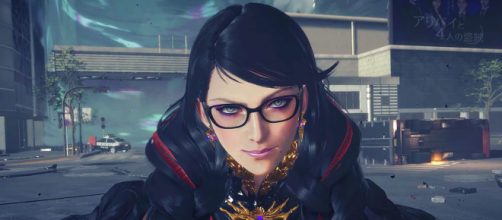In the weeks leading up to the release of the "Bayonetta 3," the game managed to court quite a bit of controversy thanks to allegations laid by voice actress Helena Taylor. However, recent news painted a far more different story, prompting fans to dismiss the whole debate as nonsense. However, the response to this whole debacle overlooks a prevalent problem in the gaming industry that must be addressed.
The allegations that started it all
In October 15th, Helena Taylor tweeted out a video accusing Platinum Games of offering her a meager $4,000.00 to reprise her role of the eponymous witch.
She proceeded to request that fans boycott the game and spend their money on charities instead. When confronted with these allegations, executive director Hideki Kamiya responded as he usually did to his detractors – by blocking them. Those familiar with Kamiya's online persona know that blocking users is one of his main quirks, but to outsiders, it looked more like a means to silence criticism. At first, fans saw Taylor's allegations as another example of the exploitation that voice actors face in the gaming industry, spurning heavy discussions about how unionization could alleviate these woes.
However, a few weeks later, gaming journalist Jason Schreier reported that Taylor had actually been offered at least $15,000 for the role.
Taylor's initial response was to stick to her original story before finally admitting that she was actually offered the amount that Schreier reported and that the $4,000 was actually for a cameo. This revelation and her request for fans to boycott the game and donate to anti-abortion charities did a good job of ruining any goodwill she might have had with fans before this whole discourse.
VO woes should not be dismissed
While Taylor should certainly be called out for her false allegations, the grievances that voice actors have towards the industry are still very real and should not be derailed. In a Chicago Tribune article from 2017, many veteran VO actors detailed the massive strain on their vocal cords caused by lengthy sessions with Courtney Taylor mentioning a hemorrhage she suffered during a performance.
According to Keythe Farley, the California's Division of Occupational Safety and Health were in disbelief over the amount of screaming that their work required them to perform.
What's worse is that the pay and compensation for this labor can vary wildly depending on the production. Sean Chiplock claims that he was paid more for his work on the indie title "Freedom Planet" than he was for the considerably bigger budgeted "Legend of Zelda Breath of the Wild" due to sales royalties from the former. In addition, he provided some offscreen vocal work for the film "Detective Pikachu," earning more for two lines than he did for "Breath of the Wild" and the spin-off title "Age of Calamity." While some actors credit the 2016 SAG-AFTRA strike with addressing some of their woes, the union neglected to make residuals and royalties part of the deal.
This isn't even covering when talents decide to take on non-union gigs. IGN reported that the standard rate for non-union work is $250 dollars an hour and there's little to no oversight during these sessions.
This isn't even a problem that's exclusive to the gaming industry. In the weeks following the revival of the cult series "Futurama," it was initially reported that John DiMaggio would not be reprising his role of Bender before a deal was finally reached. Even more recently, conflicts between Crunchyroll and SAG-AFTRA have resulted in the recasting of several roles in the English dub of the Anime series "Mob Psycho."
Despite the whole kerfuffle surrounding Helena Taylor and "Bayonetta 3," the woes of voice actors should not be dismissed or sneered. Voice actors give life to these characters who continue to entertain and stimulate audiences of all shapes and sizes, and their work should not be taken for granted.


